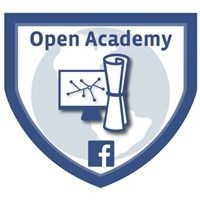| Facebook's Open Academy Gets CS Students Involved In Open Source |
| Written by Sue Gee | |||
| Wednesday, 20 November 2013 | |||
|
Facebook has expanded its Open Academy scheme which aims to help computer science students prepare for a job in the software industry by contributing to open source projects is getting ready for its next session that starts in early February. According to a recent note on Facebook Engineering, Open Academy is a program designed to provide a practical, applied software engineering experience as part of a university student’s CS education. The idea is that faculty members at participating universities matches CS students with active open source projects and mentors and the students to receive academic credit for their contributions to the open source code base. On the About Open Academy Facebook page the reason for the program is explained: Software Development as a profession has many features distinct from Computer Science as an academic subject. Projects are larger (in timeline and size) than the people who participate in them; project management and interpersonal relationships can have as much impact on software design as technical issues, and systems are ultimately evaluated by user satisfaction rather than technical merit. [This scheme] will enable students to experience directly what they have been taught in existing software development classes.
It was piloted at Stanford in 2012 under the auspices of Jay Borenstein, who as well as being a Computer Science lecturer at Stanford University is "Education Modernizer" at Facebook. For its first full run in Spring 2103 the participating institutions included MIT, Cornell, University of Texas at Austin, Canada's Universities of Toronto and Waterloo; University of Singapore, University of Tokyo, Imperial College, London, Jagiellonian University in Poland, and Finland's University of Helsinki, and Tampere University of Technology. To date the open source projects have included Ruby on Rails, MongoDB, SocketIO, Mozilla OpenBadge, ReviewBoard, Phabricator, PouchDB, Kotlin, and Freeseer. For the forthcoming session the scheme has expanded to a further nine US universities: University of Pennsylvania, University of Illinois at Urbana–Champaign, UC Berkeley, UCLA, UC San Diego, Columbia University, Carnegie Mellon University, Purdue and the University of Washington; and to Poland's University of Warsaw. The Winter 2014 session that starts in early February will officially begin in early February when all of the participating faculty, students, and open source mentors from around the world will fly to Facebook's headquarters for a three-day kickoff event. Here, students will get together with their teams and begin to dive into their project codebases. Faculty will also get together and discuss innovative approaches to improving computer science curriculum as a whole. After the kickoff session, students return to their home universities and continue work in virtual teams. Mentors continue to support the teams during the remainder of the project by participating in online forum and mailing list discussions, conducting or participating in online meetings through video conferencing and chat. They also helping students find and understand tasks, reviewing code contributions and helping to coordinate work through issue tracking systems. The course instructors at each university meet with student teams at regular intervals to review progress and, ultimately, assign grades. This sounds like an initiative that will benefit both students and open source organizations and Facebook itself given that open source projects are integral to its operations. With this and Google Code-In, which gives pre-university students opportunities to contribute to open source projects, open source organizations have a ready supply of talent they can tap into. However, mentoring students is a time consuming responsibility and for such schemes to prosper will require commitment from all the parties involved. More InformationRelated ArticlesGet Set for Google Code-In 2013 Facebook 2014 Hacker Cup Starts Early
To be informed about new articles on I Programmer, sign up for our weekly newsletter, subscribe to the RSS feed and follow us on Twitter, Facebook or Linkedin.
Comments
or email your comment to: comments@i-programmer.info
|
|||
| Last Updated ( Wednesday, 07 December 2016 ) |


